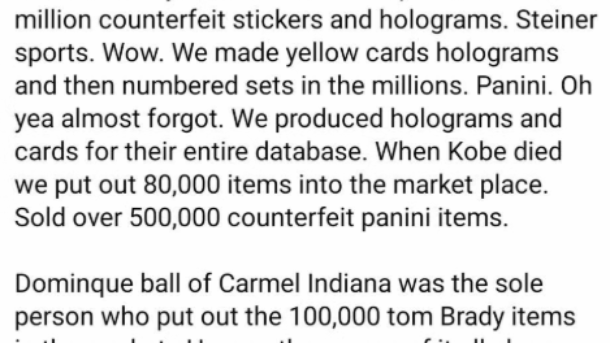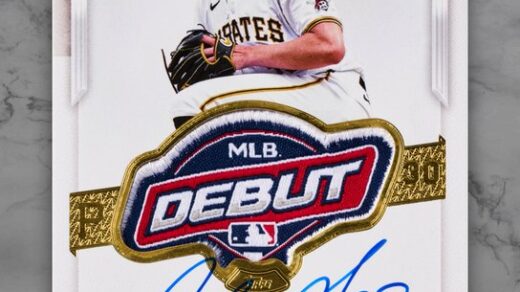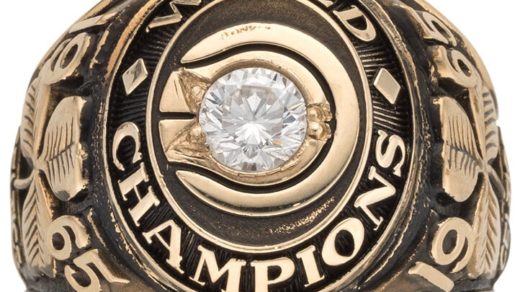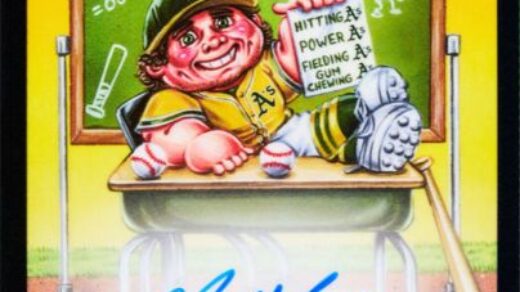In a chilling turn of events, Indiana’s vibrant sports memorabilia community was recently struck by a scandal of monstrous proportions, one revealing the tarnished underbelly of a market many believed untouchable. This uproar comes in the wake of authorities identifying Brett Lemieux, a notorious autograph dealer, as the man found dead in the midst of a dramatic police raid focused on a massive counterfeit memorabilia scheme. Nestled in suburban Westfield, the plot has quickly become the kind of scandal movies are made about, sending waves of shock, disbelief, and perhaps reluctant nods of understanding through those in the know.
As mysteries often do, this one ends rather tragically. The Hamilton County Coroner’s Office is yet to issue an official statement regarding Lemieux’s death, but early reports from local law enforcement indicate a self-inflicted gunshot wound was the culprit. It occurred at the exact moment officers stormed in with a search warrant in hand, signaling the start of an extensive exploration into what authorities are calling a multi-million dollar fabrication of sports memorabilia items.
The ripple effect from this theatrical unraveling started humbly enough with a Facebook post. But, oh what a post! Appearing in the “Autographs 101” group, a confession from Lemieux himself unfurled like the worst imaginable expose, revealing a counterfeit scheme that allegedly spewed more than four million fake items into an unsuspecting market. The supposed haul? A jaw-dropping $350 million in sales, a figure which has not just turned heads but twisted entire perspectives.
To make things more tantalizingly complex, Lemieux was trading under the business veil of Mister Mancave. Yep, the name alone evokes images of cozy collector lairs stacked to the ceiling with memorabilia, and the advertised “largest framed jersey inventory on the web” sure made it sound welcoming. But despite shouting a Columbus, Ohio address from its virtual rooftops, Sherlock Holmes himself might struggle to find a brick-and-mortar presence there, or anywhere. This business was incorporated, not just once, but twice in Indiana over a span of five amorphous years.
Diving deeper into Lemieux’s alleged operations is like exploring a crime anthology. The supposed confession suggests his ace in the criminal deck: forging the hologram stickers used by major authentication companies. Here, names like Panini, Fanatics, and Tri-Star aren’t just whispers but luminaries in the authenticity realm, and now their prestigious symbols became yet another face of the operation’s deceit. Following Kobe Bryant’s tragic 2020 demise, Lemieux supposedly unleashed 80,000 fake Bryant relics into the market, each dotted with authentication holograms that appeared heartbreakingly legitimate.
Of course, basketball wasn’t the only sport dragged unwillingly into this quagmire. A casual if not skeptical internet explorer might stumble upon an Aaron Judge-signed baseball on Lemieux’s site—a tantalizing offer for $399, a deal that reads more like a dare than a discount when placed against Fanatics’ official $699 pricing. How did such schemes fly under collectors’ radars for so long? The answer lies in the compelling allure of those forged holographs, which whispered authenticity when they were nothing but siren songs pulling buyers toward duplicitous investments.
The industry now finds itself in a precarious scramble to restore faith. Fanatics pursues authenticity like a knighted warrior, overhauling its hologram technology two years ago in an earnest battle against fakes. They’ve aligned with law enforcement, and experts, including former FBI agents, to sift through this tangled web, ensuring collectors’ dreams don’t warp into disillusionment.
While the staggering $350 million figure has garnered skepticism—it reads like an inflation of reality to some, while to others, it highlights the graver potential impact—it’s hard to dismiss the situation’s wreckage. Autograph authorities like Steve Grad point out the near-genius yet sinister methods of forgery employed in this ruse. Autopens and other intricacies make spotting fakes an uphill battle and the reverberations, he warns, will echo for years.
Not everyone is caught off guard, though. Whispers in the autograph community had long flagged Lemieux’s possessions as suspicious, with some industry insiders raising eyebrows at his strangely acquired signatures, considering athletes in question hadn’t inked deals in years. Unsurprisingly, other names have popped up in Lemieux’s so-called exposé, but individuals like Indiana’s Dominique Ball and Wisconsin’s Nickolas Litscher have swiftly rebutted any ties, with Litscher even preparing legal action to clear his unjustly tainted name.
As the legal dust settles and truth seeks fresh footing, collectors eye their cherished memorabilia with uncertainty. This scandal is a stark reminder of the industry’s vulnerability, underscoring an urgent need for revamped vigilance and ever-innovating fraud prevention. Amidst this storm of deceit and discovery, one resonant truth shines through—appreciating the timeless value of authenticity is an ongoing journey, one that demands adaptation and attention from all who tread its path.




